Radical protesters clashed with French security forces Thursday in a new show of anger against President Emmanuel Macron’s pension reforms, with dozens arrested and some starting a fire at one of his favourite restaurants.
While the number of protesters has diminished, unions are keen to maintain almost three months of pressure ahead of a key court ruling next week on the retirement overhaul.
The controversial reforms seek to raise the retirement age from 62 to 64, while requiring people to work longer for a full pay-out.
Macron, currently visiting China, is facing the biggest challenge of his second term over the changes, defiantly refusing to budge despite sliding personal popularity ratings.
Demonstrations were held across the country, with people brandishing placards or waving union flags from Paris to the southern cities of Montpellier and Marseille.
“We haven’t given up yet and we don’t intend to,” said 50-year-old public servant Davy Chretien, as he marched in Marseille.
The interior ministry said 570,000 people had demonstrated Thursday, sharply down from the 740,000 it counted last week.
Official figures remain well below organisers’ counts, with the CGT union claiming 400,000 people had turned up to the Paris protest while the ministry tallied 93,000.
– Restaurant set ablaze –
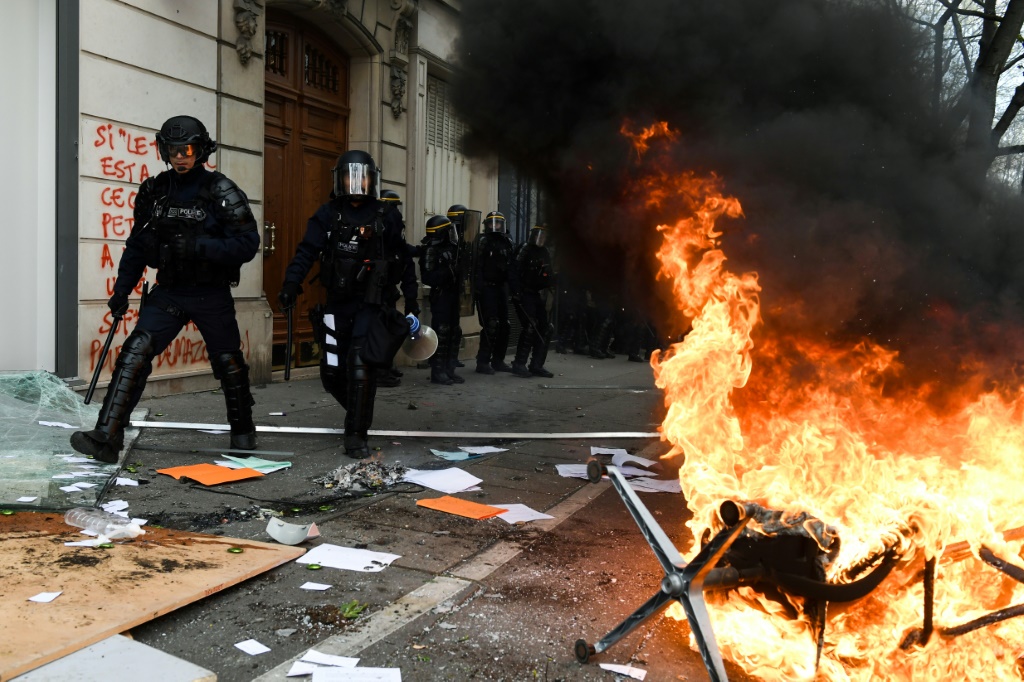
Among the crowd, some hardline protesters pelted paint against the shields of heavily equipped policemen outside La Rotonde, a famous Paris brasserie favoured by Macron.
An AFP journalist saw a group of men dressed in black set off fireworks and throw stones toward the eatery.
The fire was caused by a flare thrown onto the fabric awning, and firefighters came to extinguish it.
Macron held a victory party at the restaurant during his successful 2017 election bid.
Elsewhere in Paris, protesters attacked a bank branch, breaking glass and carrying off files and computer keyboards, an AFP correspondent saw.
Some threw projectiles at police, who responded with tear gas. The Paris police headquarters said there had been injuries among officers, without saying how many.
Striking railway workers also briefly stormed the former headquarters of the Credit Lyonnais bank, a building that now houses companies such as the BlackRock investment firm.
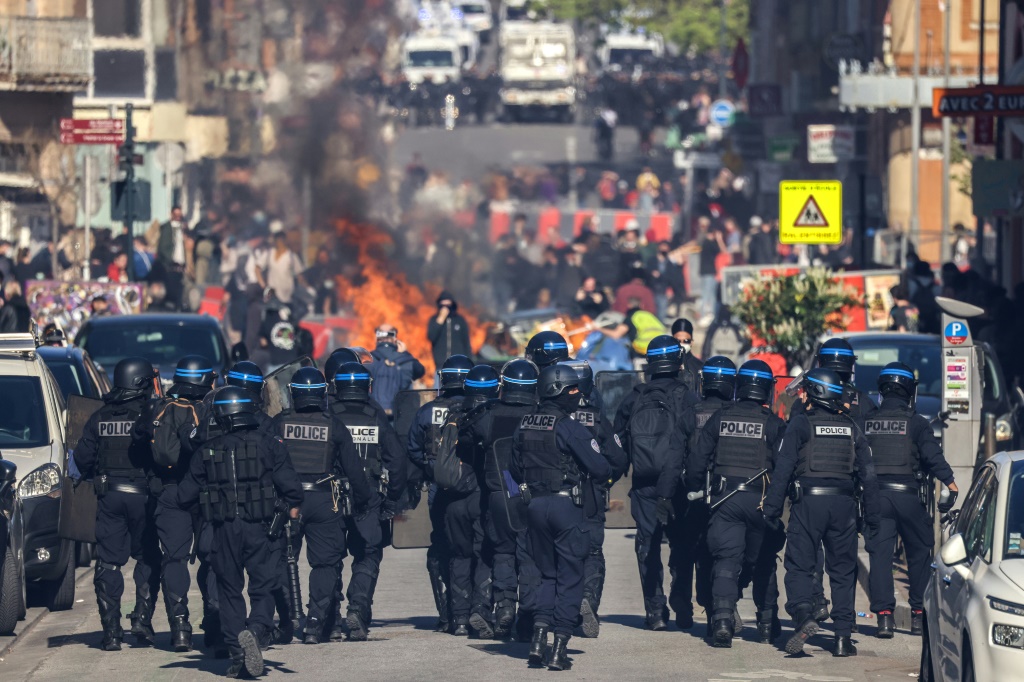
In the western city of Nantes, protesters threw rocks at police, who also used tear gas, an AFP photographer saw.
Protesters in the eastern city of Nancy meanwhile set fire to the front entrance of the local branch of France’s central bank.
Interior Minister Gerald Darmanin said on Twitter that 111 people were arrested nationwide and 154 police wounded, some of them seriously.
– Losing steam? –
Unions had hoped for a mass turnout on the 11th day of action since January, however there are signs the protest movement is losing momentum.
On Thursday, the Paris metro system experienced minimal disruption, and across the country only one in four high-speed trains was cancelled.
The education ministry said only eight percent of schoolteachers were on strike.
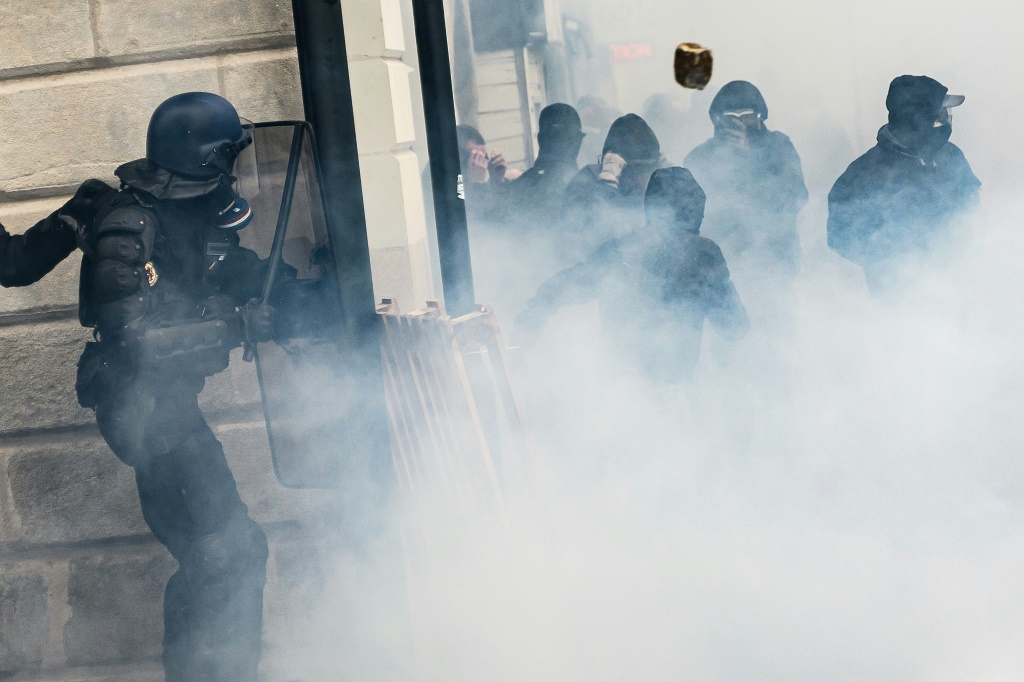
The protest movement turned violent after Prime Minister Elisabeth Borne invoked on March 16 a controversial executive power to force the bill through parliament without a vote.
French unions have called for another day of protests on April 13.
All sides in the standoff are awaiting an April 14 verdict on the validity of the reform by France’s Constitutional Council, which has the power to strike out some or even all of the legislation.
Protests have no sway over council members, known as the “wise ones”, but unions want to keep up their momentum.
“We’re in the middle of a social crisis, a democratic crisis,” Laurent Berger, head of the centrist CFDT union, told RTL radio.
“It’s a problem… that needs to be solved by the president.”
– Sliding popularity –
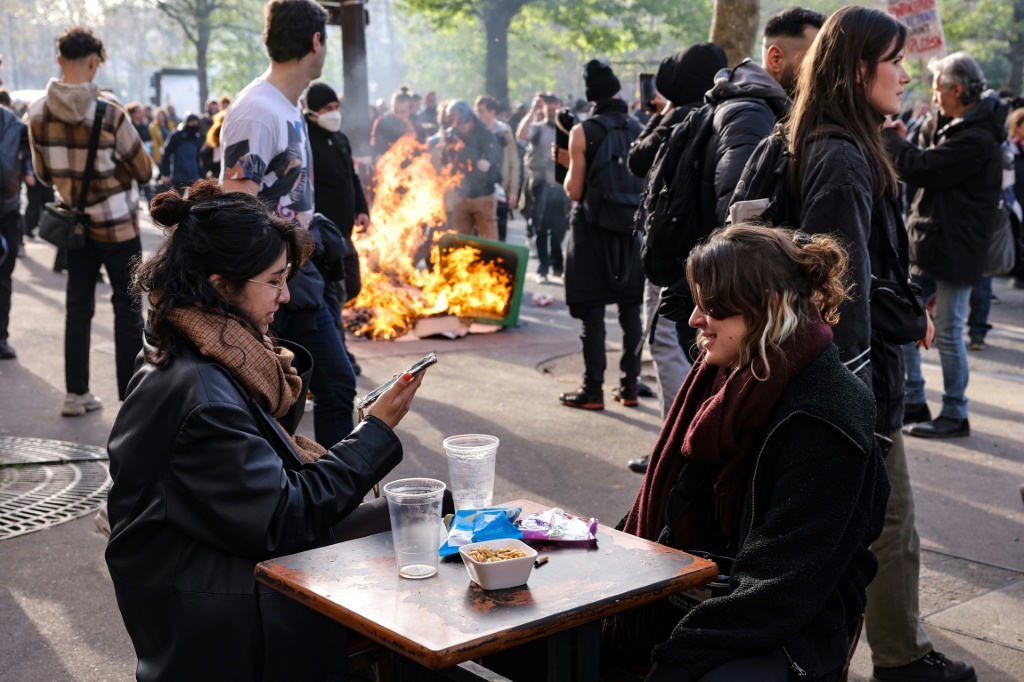
France’s eight main labour unions said a meeting with Borne on Wednesday, the first since January, was a “failure” after she refused to discuss going back on the minimum retirement age of 64.
The government has argued that working longer is necessary to prevent the pension system from plunging into deficit.
In the rest of Europe, people mostly retire in their late 60s as life expectancy has increased.
Critics say the pension reform is unfair to people in tough jobs who start working early, as well as women who interrupt their careers to raise children.
If the Constitutional Council gives its green light, Macron will be able to sign the changes into law.
But the standoff has eroded his popularity, with a poll from the Elabe group suggesting Wednesday that far-right leader Marine Le Pen would beat him if the presidential election of last year were repeated now.
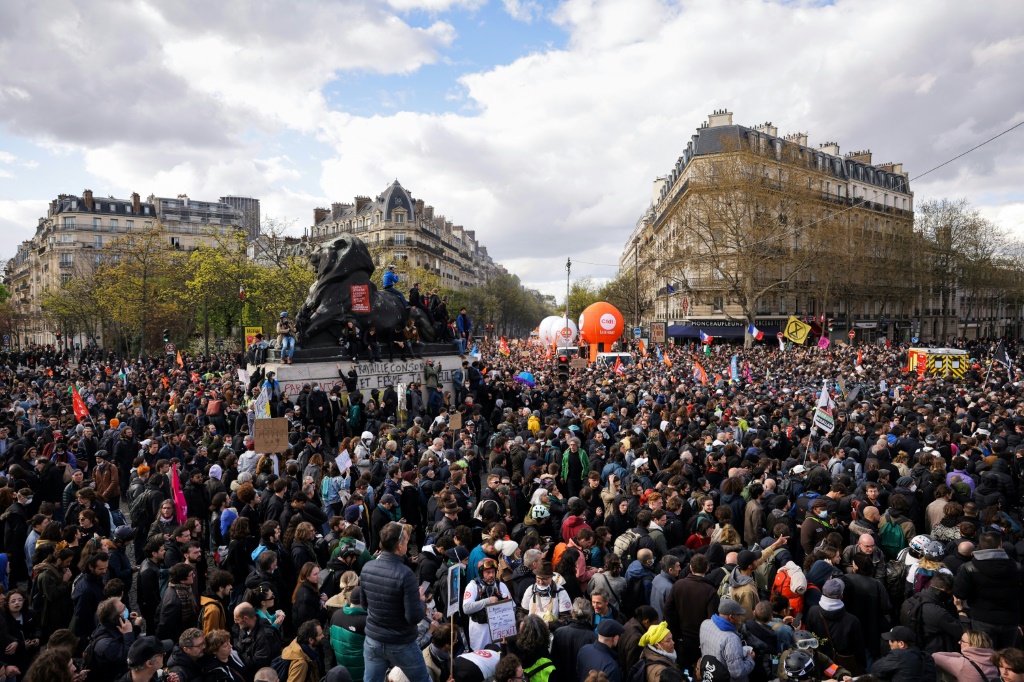
Around 64 percent of people still support the anti-pension reform protests, polling firm Odoxa found in a survey published Thursday, little changed from previous weeks.






